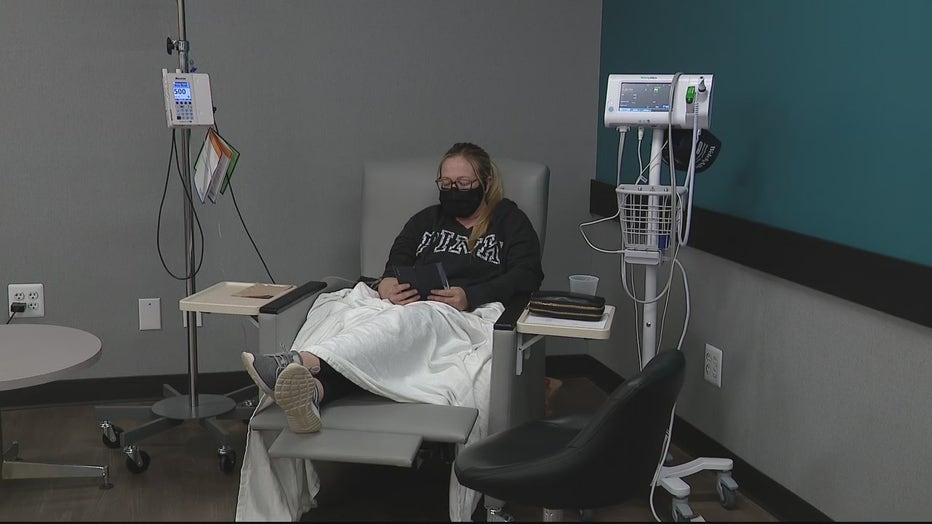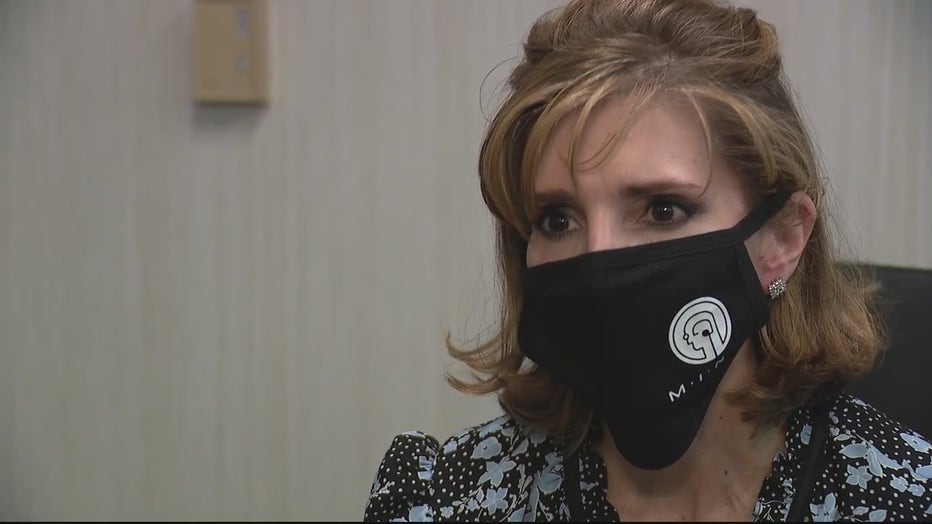MIND in Farmington Hills helps provide hope to patients living with multiple sclerosis

Research at Farmington Hills MIND aims to help MS patients
Research is being done at the Michigan Institute for Neurological Disorders (MIND) in Farmington Hills to help patients who have multiple sclerosis.
FARMINGTON HILLS, Mich. (FOX 2) - Michelle Allen was diagnosed with multiple sclerosis six years ago. Once a month she visits the infusion center at the Michigan Institute for Neurological Disorders (MIND) in Farmington Hills.
"From the moment of diagnosis, this team has been here to assist me every step of the way," Allen said.
She said it has been a challenge and she has had ups and downs, but it has been more than a year since her last relapse.

Michelle Allen at the infusion center.
Allen is one of a million people living with MS in the United States. The autoimmune disease attacks the brain and spinal cord. It leaves behind lesions that can cause patients to lose their eyesight, balance, or mobility.
There are now 17 treatments for MS.
Sonda Rossman said her diagnosis changed her life.
"My first symptoms started when I was 20. I lost vision in my right eye. That was 1991. There were no treatments and I couldn't be diagnosed at that point," she said. "Starting treatment was very very empowering. It was the day I could start to take control back of my life."

Sonda Rossman
Rossman has made it her life's mission to be an advocate. She has testified before the FDA about treatments and has worked to change laws to lessen the financial burden on patients.
"I've been really able to take my disease and not let it control me. I let it empower me and here we are, trying to make a difference," she said.
Together with her late husband Dr. Howard Rossman, started the MS center at MIND, where they're researching new treatments and providing patients with a comprehensive approach to their disease.
"Aggressive treatment first is really the way to go, which is a very different thinking than many years ago," said Dr. William Boudouris, the president of MIND. "We stop the inflammatory response now and ultimately we start to work on repairing old lesions. I think that really changes it for people."
Boudouris said he believes that there is hope for the future.

